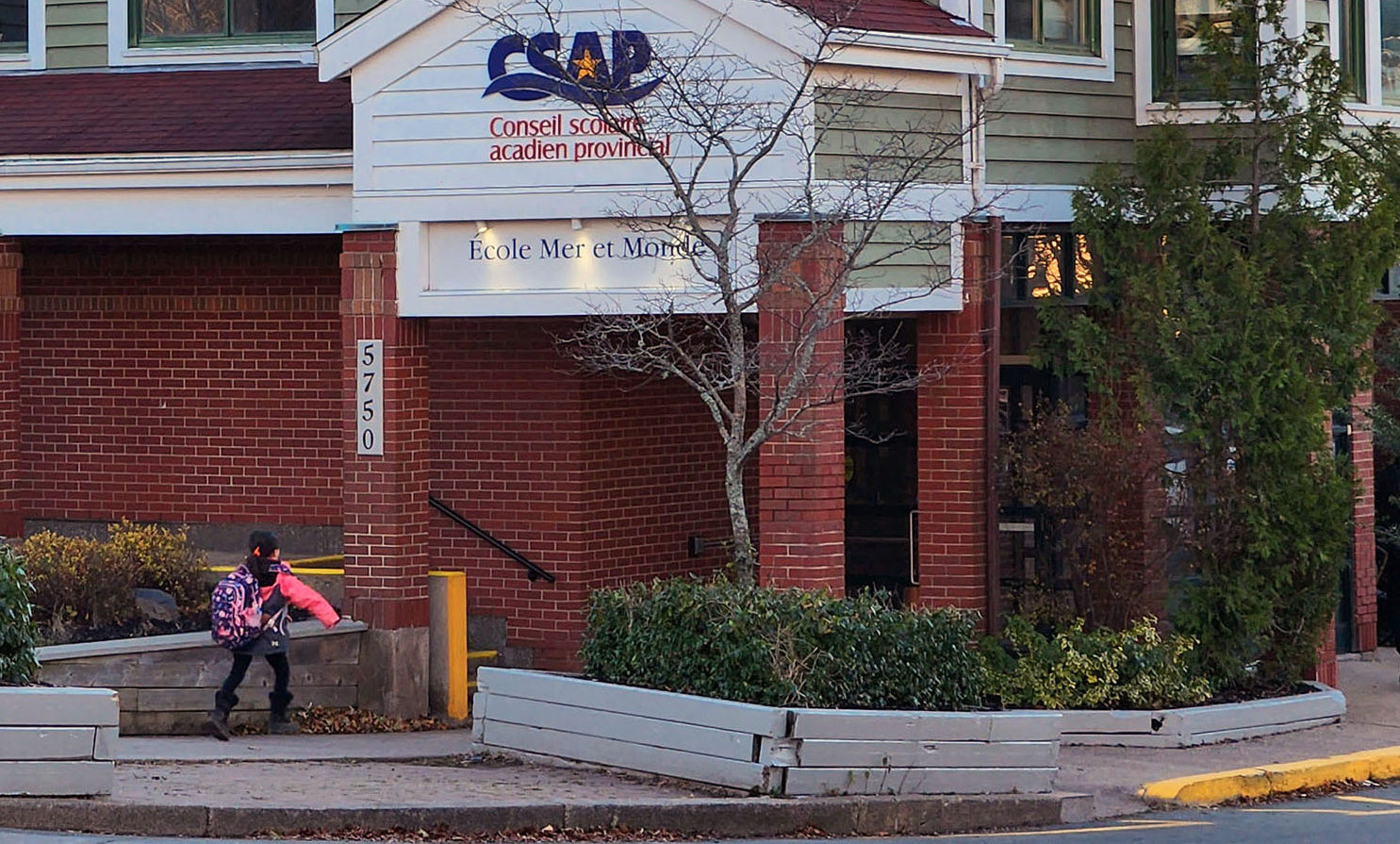Minority language census data says 17,000 are eligible for French education in Nova Scotia
French board says not everyone with the right to minority language education has access

caption
Students receive a French-first education at this CSAP school in Halifax.Nova Scotia’s French language school board says newly-released Statistics Canada data will help eligible students access their minority language education rights.
“Now that they’re flagging the data it will give us statistics on how to better serve the families that are in our schools,” said Stephanie Comeau, a spokesperson with the French school board, Conseil scolaire acadien provincial.
On Wednesday, Statistics Canada released minority language data that showed 17,000 Nova Scotian students under the age of 18 are eligible for a French-language education.
CSAP’s budget report shows that 6,233 students are enrolled in French-first schools across the province. Some eligible parents choose to have their children educated in English. Others cannot enrol their children in French-language schools because of geography.
CSAP is a French-first school board that operates 22 language schools in 11 communities throughout Nova Scotia. Comeau said some communities cannot access a CSAP school because their distribution is regional.
Canada collected minority language data for the first time during the 2021 census. The Statistics Canada release enumerated children under the age of 18 who are eligible for instruction in the minority official language for communities across Canada.
French is Nova Scotia’s minority official language. Section 23 of the Canadian Charter of Rights and Freedoms guarantees minority language education rights for eligible Canadians.
Parents have the right to minority language education for their children if the parents’ first language is the minority language, if the parents were educated in the minority language, or if their children are receiving a minority language education.
Nova Scotia ranks just under the national average with 10 per cent of its school-age children eligible for French-language education. About half of those students live in Halifax.

caption
The CSAP educates French-language students in Nova Scotia.“Depending on where you live in the province, you may not have access to a school,” Comeau said. “If you’re in Amherst, Nova Scotia, the closest CSAP school is Truro.”
The province recognized Tor Bay, Guysborough County, as an official Acadian region in 2021. The Torbay Area Parent/CSAP Liaison Group is composed of families from the area who want their children to have access to a CSAP education.
The chair of the group, Jennifer Delorey, said there are about 40 students in the region who are eligible under section 23 of the charter.
“Currently, we do not have access to French language education in our area,” Delorey said. She said Acadians in the region are losing their French language and heritage because of the rights taken from the Acadian people living there.
The Tor Bay area parent/CSAP liaison group are presenting an official request to CSAP for a French-language school for their children on Dec. 10.
Comeau said it is not practical to build schools for small numbers of students and that she hopes the provincial government uses the new data to find solutions for eligible students who live too far from CSAP schools.
Statistics Canada shows a decline in minority language education attendance at French language schools with an increase in distance from schools across communities in Canada.
The data shows that 75 per cent of eligible students outside of Quebec who live within one kilometre of a French-language school attend or have attended those schools.
Of the eligible students who live more than 10 kilometres away, only about half attended minority language schools. More than 90 per cent of children across Canada live within 15 kilometres of a minority official language school, but the average distance in rural areas is almost 20 kilometres.
About the author
Jeremy Hull
Jeremy Hull works for CBC. He's published in magazines throughout the Maritimes. He's happiest when writing about jiu-jitsu or fly fishing. Jeremy...
